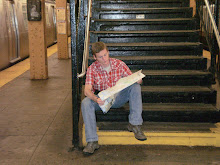The dancing was a spontaneous continuation of our evening soccer game. It started on the way back to the NGO center from the field, our first full day of boys camp had just been completed. What had been a tired march back quickly transformed itself into a chanting parade through Ouesse's small streets. This was the scene from boys camp a few days ago and will be the image I take away from the experience, nothing feels better than kicking off the camp season magnificently and we most certainly did just that, summer can begin.
Education volunteers, like myself, have a built in vacation period when the school season ends. This does not mean we just run off to town and leave our communities. Rather, we continue what we know how to do, teach kids. This past weekend was Camp Espoir in Ouesse, a good size town north of my community, Aklampa. Six teams were present at this camp, Aklampa, Tchaourou, Challa-Ogoi, Kemon, Ouesse 1 and Ouesse 2.
Camp, for Beninese children, is really a novel idea. For most children, no school means more work. More going to the fields to help their parents, more going to the well to fetch water. Our goal was to reward our best students from our respective communities and to so them how to continue their education in new creative ways.
Just a quick sampling of our presentations for you; model parliamentary session, sexual health education, nutrition and health, and drug abuse and addiction. What camp would be complete without a movie night, Indiana Jones and The Last Crusade, en francais, Indiana Jones et La Derniere Croisade. C'est bon!
The camp really serves to bring us closer to our kids, the people we're most connected with at our jobs. Each member also brought a teaching pal with them from their community making it that much more of a bonding experience. It was more poingent for me and a few other volunteers present as we will be leaving soon. To see the children you've been trying to impact bloom around other students also working with volunteers, just to see them interact and share their experiences in a fun atmosphere meant the world to us.
And so we danced. We danced because we knew we were doing great things. We knew these kids would grow up and make this country better. And we knew, and know, that little time is left. Americans are generally embarrassed to dance, as if they are showing a part of them that is meant for them and them alone. It wasn't worth being afraid to dance on this day.
